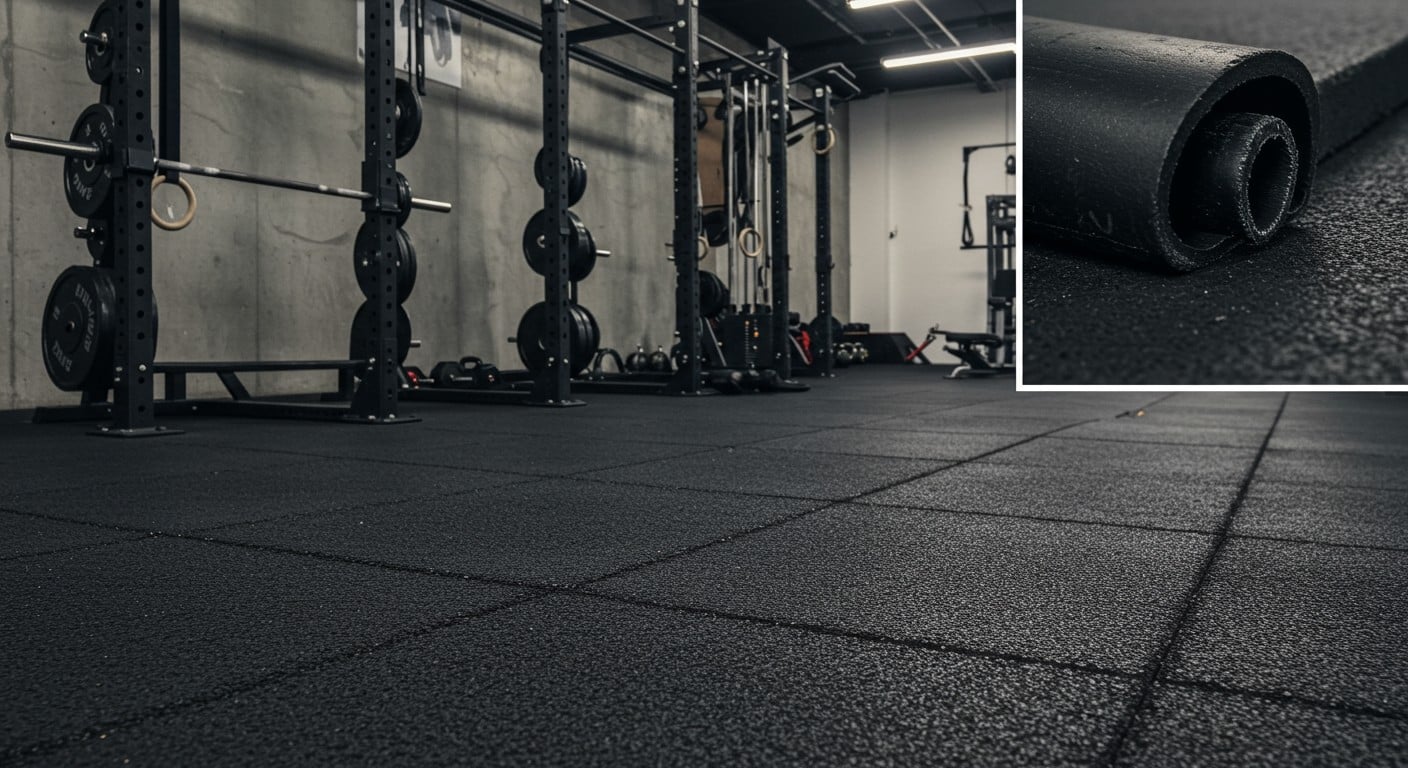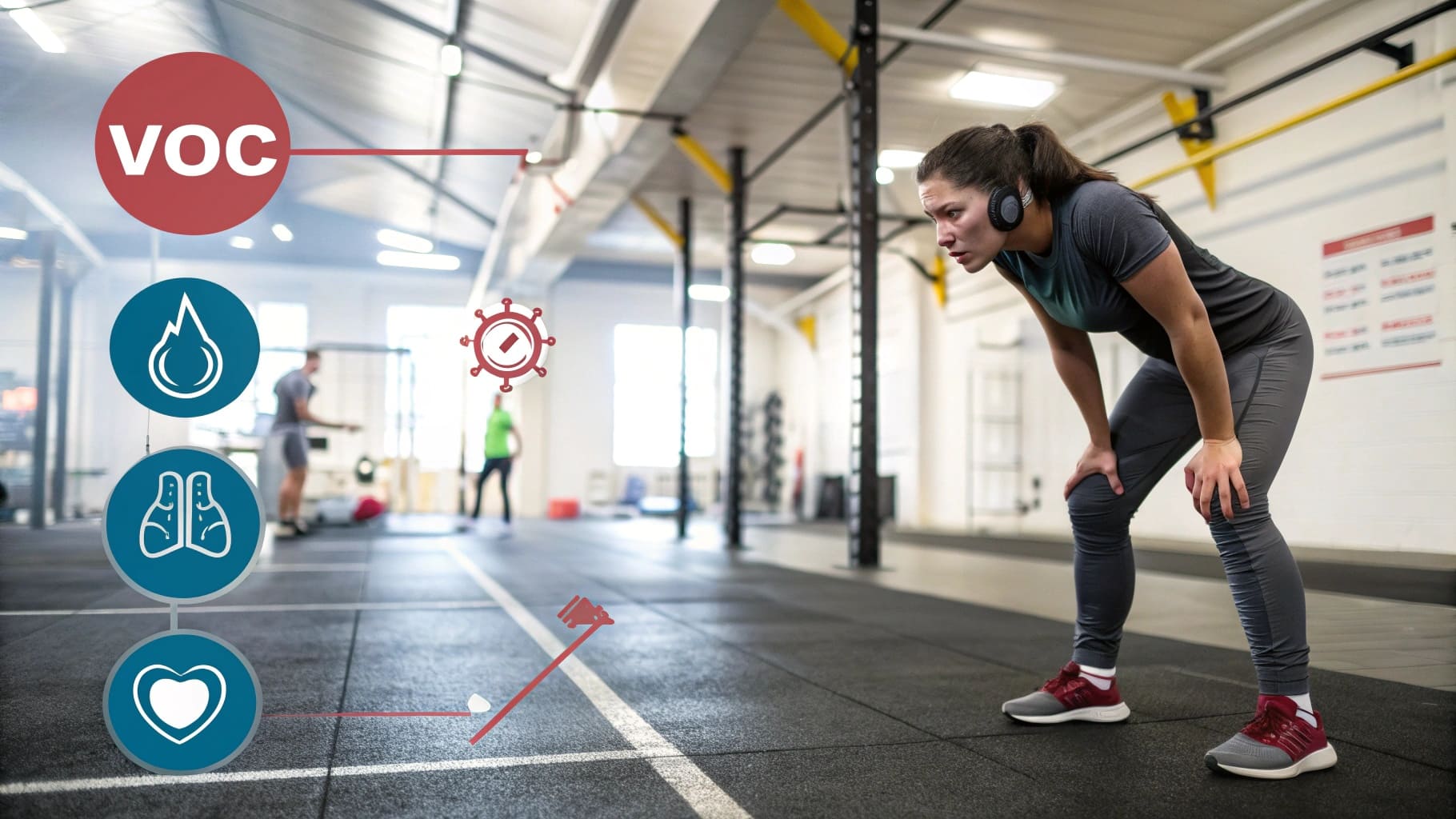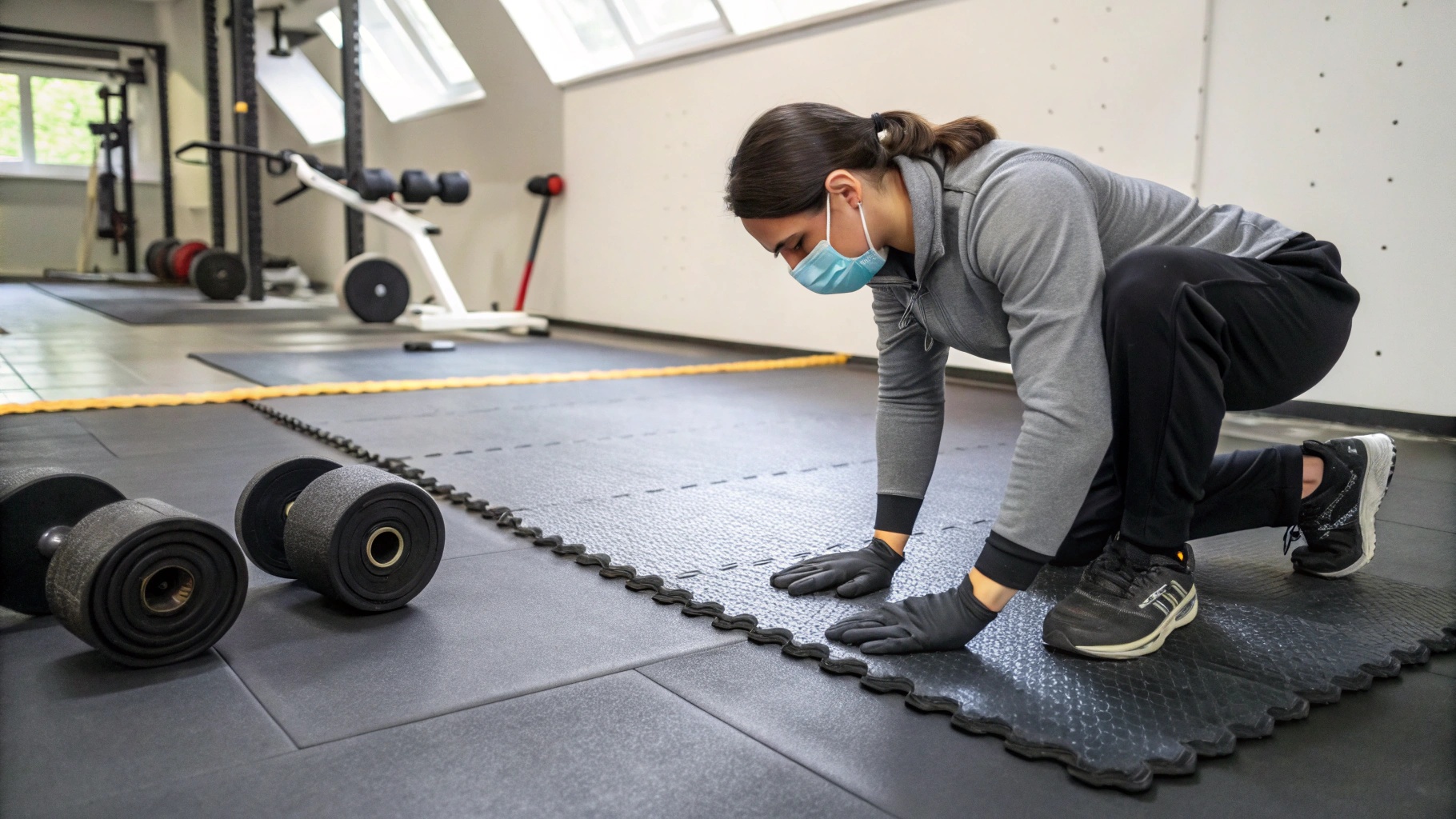The new gym smell can be overwhelming. You’ve just installed new rubber flooring, and that strong, distinct odor hits you – but what’s causing it, and is it dangerous?
Rubber gym flooring smells due to volatile organic compounds (VOCs) released from the material. The smell’s intensity and duration depend on rubber type, thickness, and environmental factors. It can be harmful in high concentrations, but generally dissipates over time with proper ventilation.
 Smelling New Rubber Flooring
Smelling New Rubber Flooring
The truth is,that smell is a common issue, but understanding its cause and impact is key. Let’s dive deep into this stinky situation.
How Can I Make My Rubber Floor Not Smell?
You just brought a new rubber floor,it is cool,but the smell is strong. It hits you right away – how can you get rid of it fast?
The quickest fix is ventilation. Open windows and use fans. Also, cleaning with mild soap and water helps. For a long-term solution, consider choosing low-VOC or virgin rubber flooring1 and ensuring good airflow in the room.Proper ventilation can prevent gas building.
 Ventilated Gym
Ventilated Gym
But there’s more to it than just opening a window. Let’s explore this.
What are the most effective short-term solutions for a strong rubber smell?
A strong rubber smell2 is annoying.Imagine you just finish a hard workout,and you want fresh air,not rubber smell.
To quickly reduce the smell, increase air circulation by opening windows and doors. Use fans to move the air. Wipe the flooring with a mix of mild soap and water.And Mop the floor.These steps will help clear the air faster.
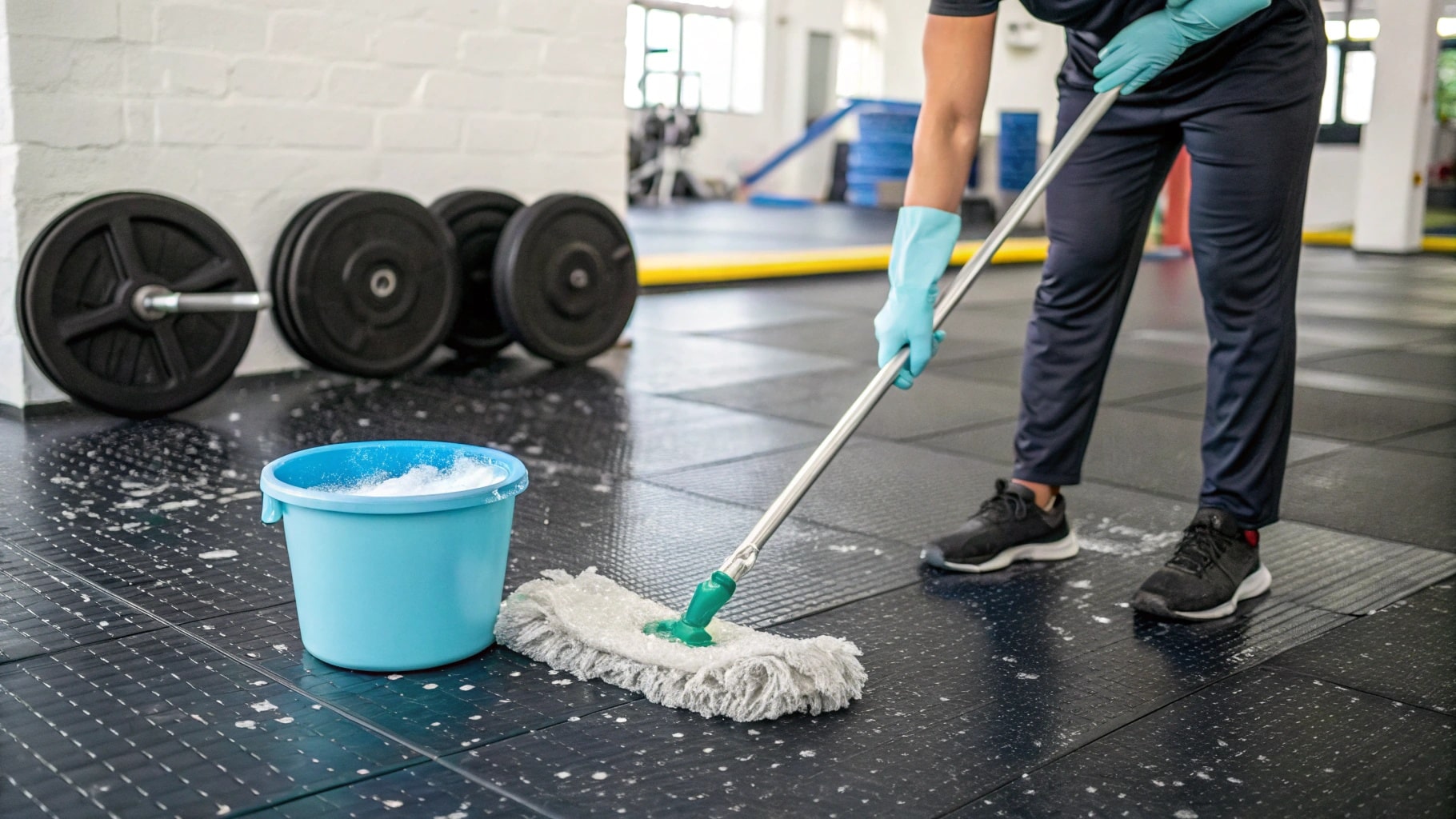 Cleaning Rubber Flooring
Cleaning Rubber Flooring
Are there any long-term strategies to minimize or eliminate the odor?
Nobody wants rubber smell forever. You want to get rid of it, but it can seem difficult.
Choose virgin rubber or low-VOC options for flooring. Ensure consistent airflow. Regularly clean with suitable products. Consider professional treatment if the smell persists.
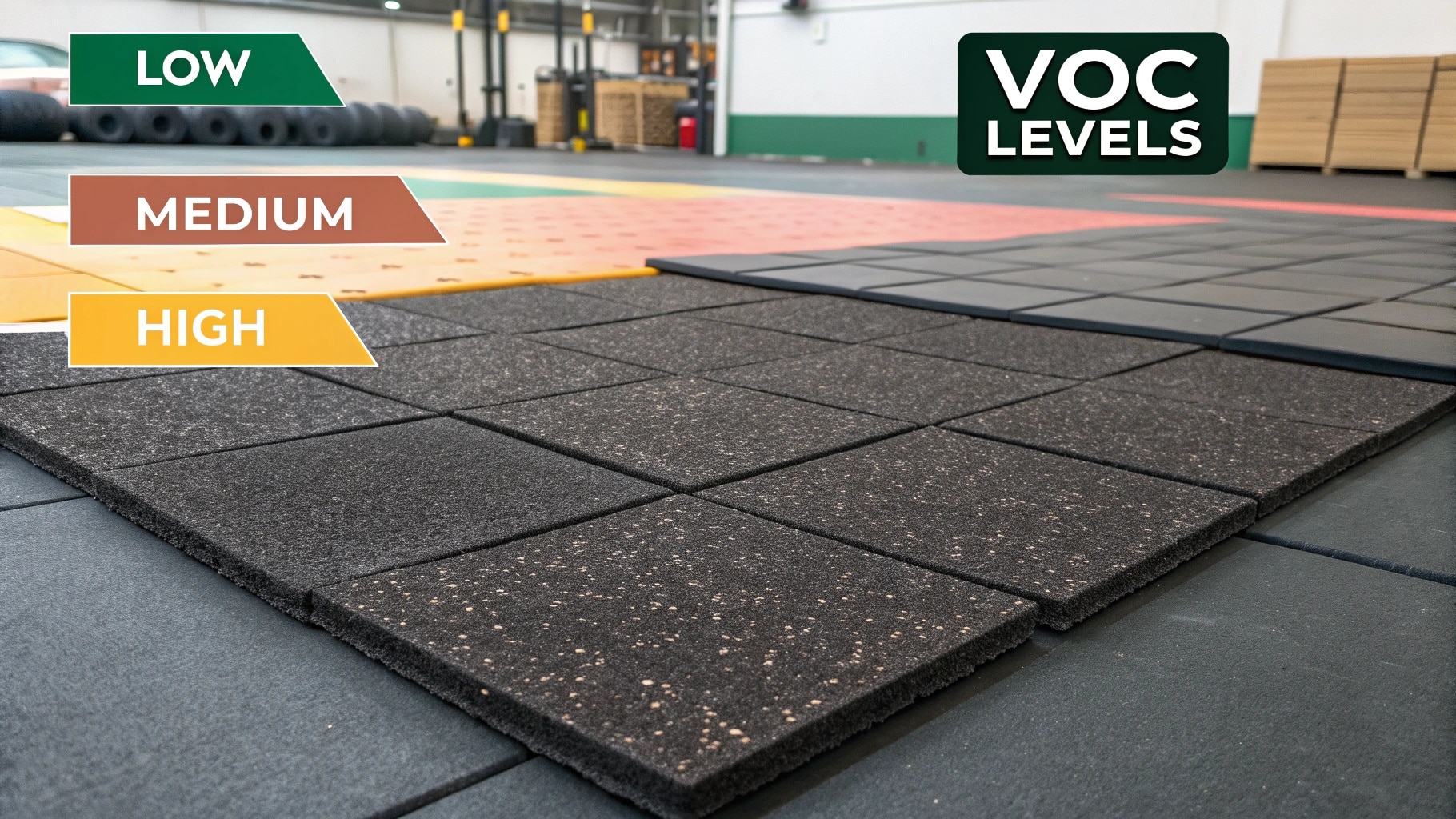 Low VOC Rubber Flooring Options
Low VOC Rubber Flooring Options
Think of it like choosing a car: some come with that "new car smell" that fades quickly, while others linger. Virgin rubber1, like a premium car, tends to have a less potent and shorter-lived smell due to its purity. Recycled rubber, like a used car, might have a stronger, more persistent odor due to residual chemicals,I also talked about this before.Here is a small table for your reference:
| Rubber Type | Initial Smell Intensity | Smell Duration | Reason |
|---|---|---|---|
| Virgin | Mild | Weeks | Fewer impurities, primarily zinc stearate (0.3%-0.7%) |
| Recycled | Strong | Weeks to Months | Residual chemicals, 8-10x more mercaptans from vulcanization residue decomposition, previous use history. |
| SBR | Strong | Prolonged in humid environments | Releases 120% more styrene monomers in humidity. |
| EPDM | Mild | short | chemical stability regardless of moisture. |
How does ventilation affect the dissipation of rubber flooring smell?
Imagine baking cookies – the aroma fills your kitchen, but opening a window lets the smell escape. Rubber flooring is similar.
Good ventilation2 carries away the VOCs released by the rubber. Poor airflow traps them, making the smell stronger and last longer. Opening windows and using fans significantly speeds up the dissipation process.
BYFIT also supplys good rubber flooring,contact us by Email:[email protected]
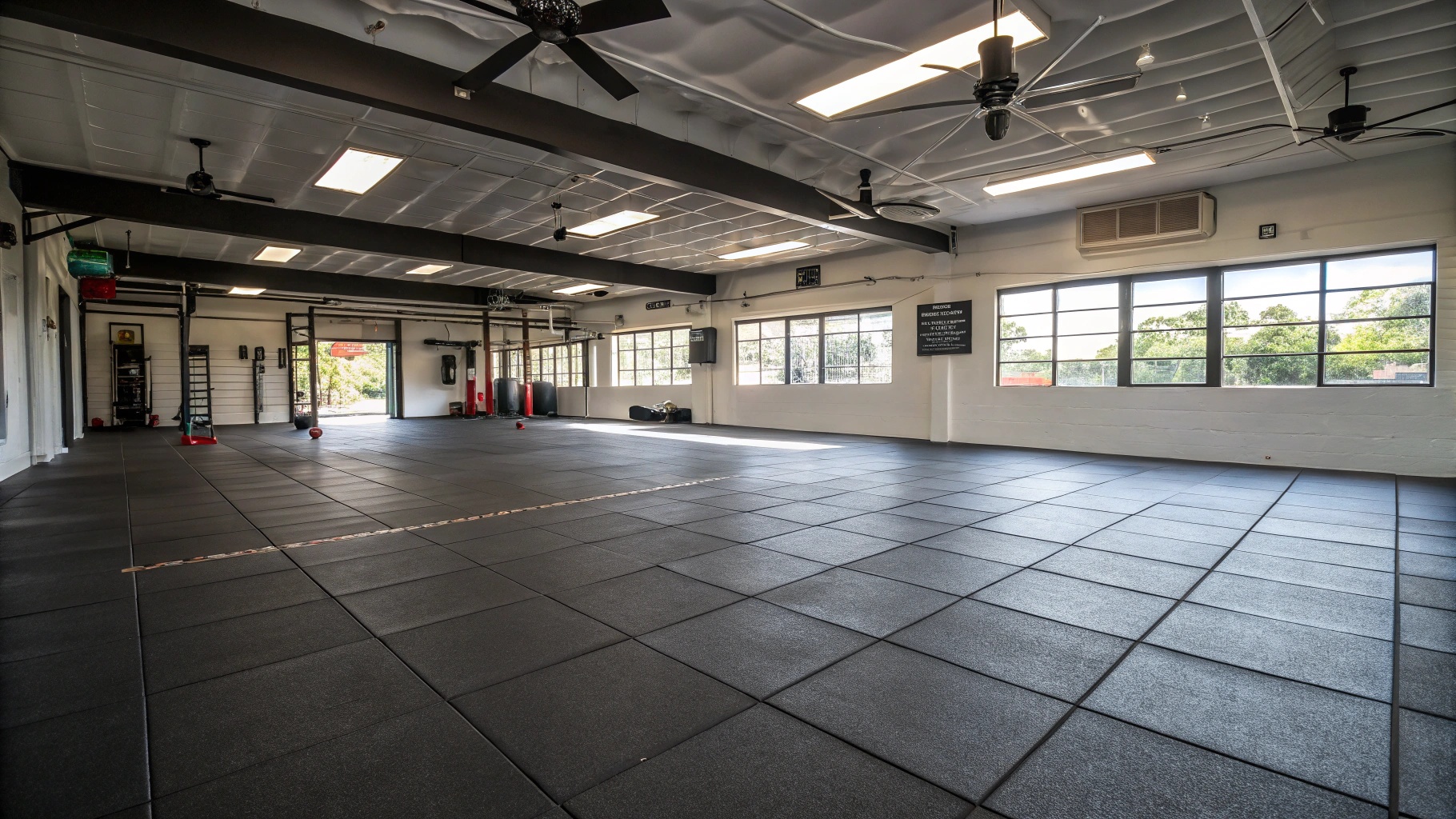 Ventilation and Rubber Smell
Ventilation and Rubber Smell
My insight tells us: Higher temperatures accelerate the release of VOCs. A hot, well-ventilated gym can eliminate the odor in weeks. A cold, sealed space traps it for months. Ventilation is like a highway for smells – the bigger and clearer it is, the faster the odor leaves.
Can specific cleaning products accelerate the removal of the odor?
Just like using the right soap to wash dishes, the right cleaner can tackle the rubber smell.
Mild soap and water is generally safe and effective. Some specialized cleaners are designed for rubber flooring1 and may help neutralize odors. Avoid harsh chemicals that can damage the rubber or worsen the smell.
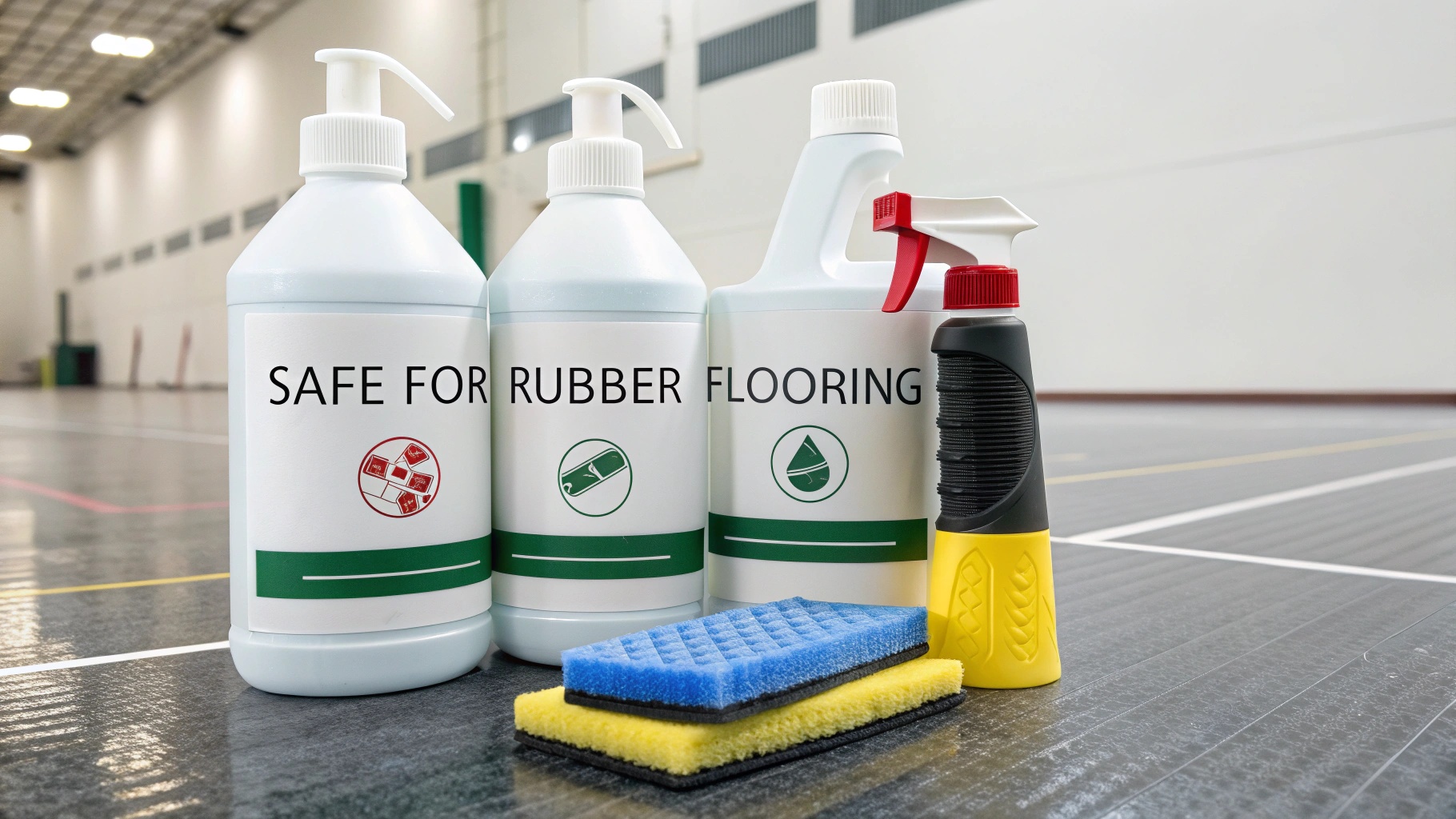 Rubber Flooring Cleaners
Rubber Flooring Cleaners
Does the type of rubber (virgin, recycled) influence the persistence of the smell?
The type of rubber is a major factor of smell.
Virgin rubber, being purer, usually has a less intense and shorter-lasting smell. Recycled rubber, containing various materials and residues, can have a stronger, more persistent odor.
[^2]](https://www.byfitgear.com/wp-content/uploads/2025/03/Comparison-of-virgin-and-recycled-rubber.jpeg) Virgin vs Recycled Rubber
Virgin vs Recycled Rubber
As I said before,virgin rubber’s odor comes from zinc stearate (0.3%-0.7%). Recycled rubber releases 8-10× more mercaptans. So, the origin of the rubber significantly impacts its smell profile.
Is Rubber Flooring Toxic?
You’ve got your new gym floor, and it smells. But you might start wondering, "Is this smell actually bad for me?"
Rubber flooring can release VOCs1, some of which can be harmful in high concentrations. However, most modern rubber flooring is designed to minimize these emissions, and the risk is generally low with good ventilation.
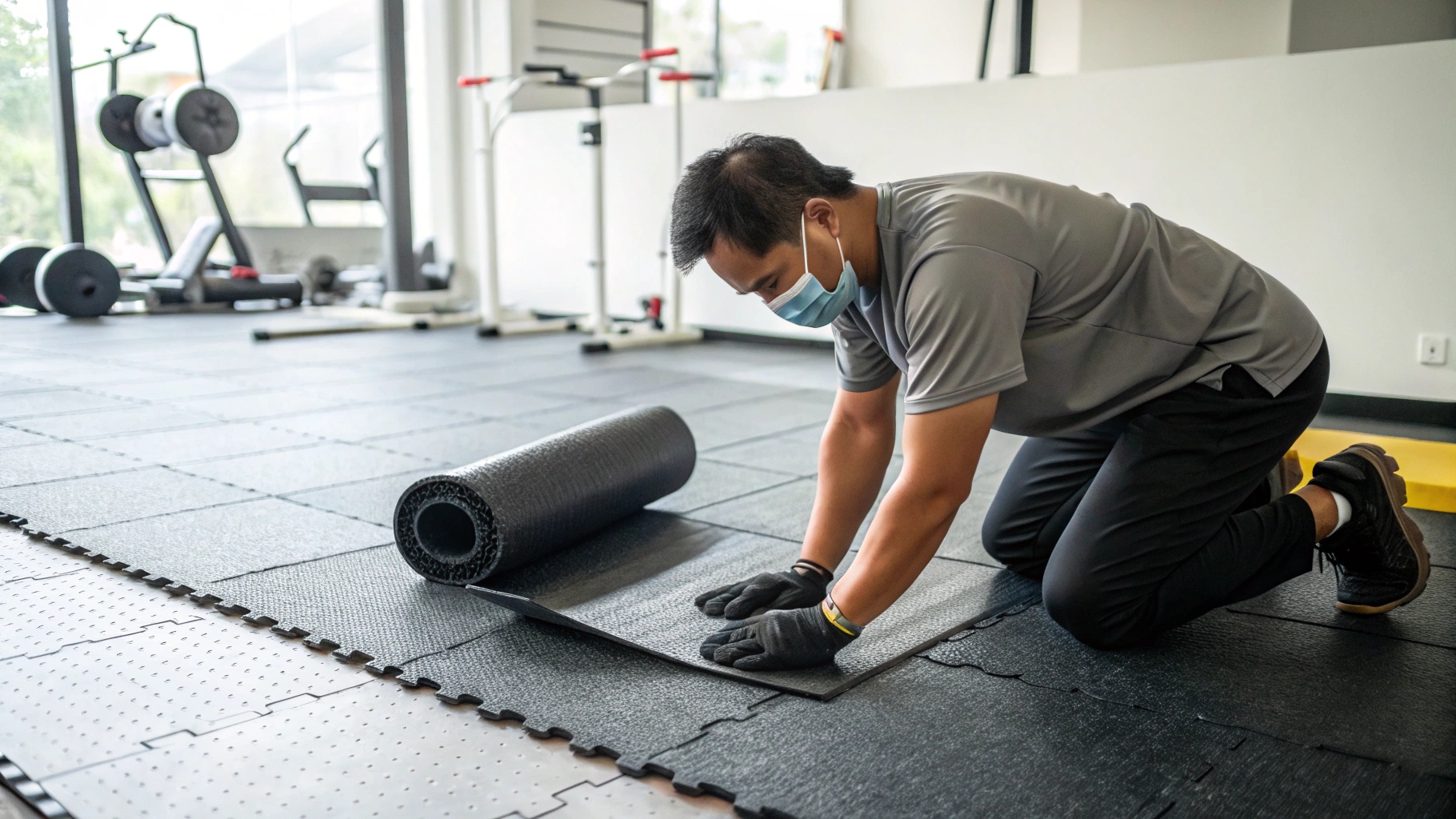 Safe Installation of Rubber Flooring
Safe Installation of Rubber Flooring
Let’s look at this more closely.
What specific chemicals in rubber flooring can be considered toxic?
It’s like a recipe – some ingredients are fine, others need caution. Rubber flooring isn’t just rubber; it has other components.
Common concerns include VOCs like benzene, styrene, and formaldehyde. These can be released from the rubber and binders used in manufacturing.
If you want to buy safe rubber flooring ,go BYFIT:https://byfitgear.com/
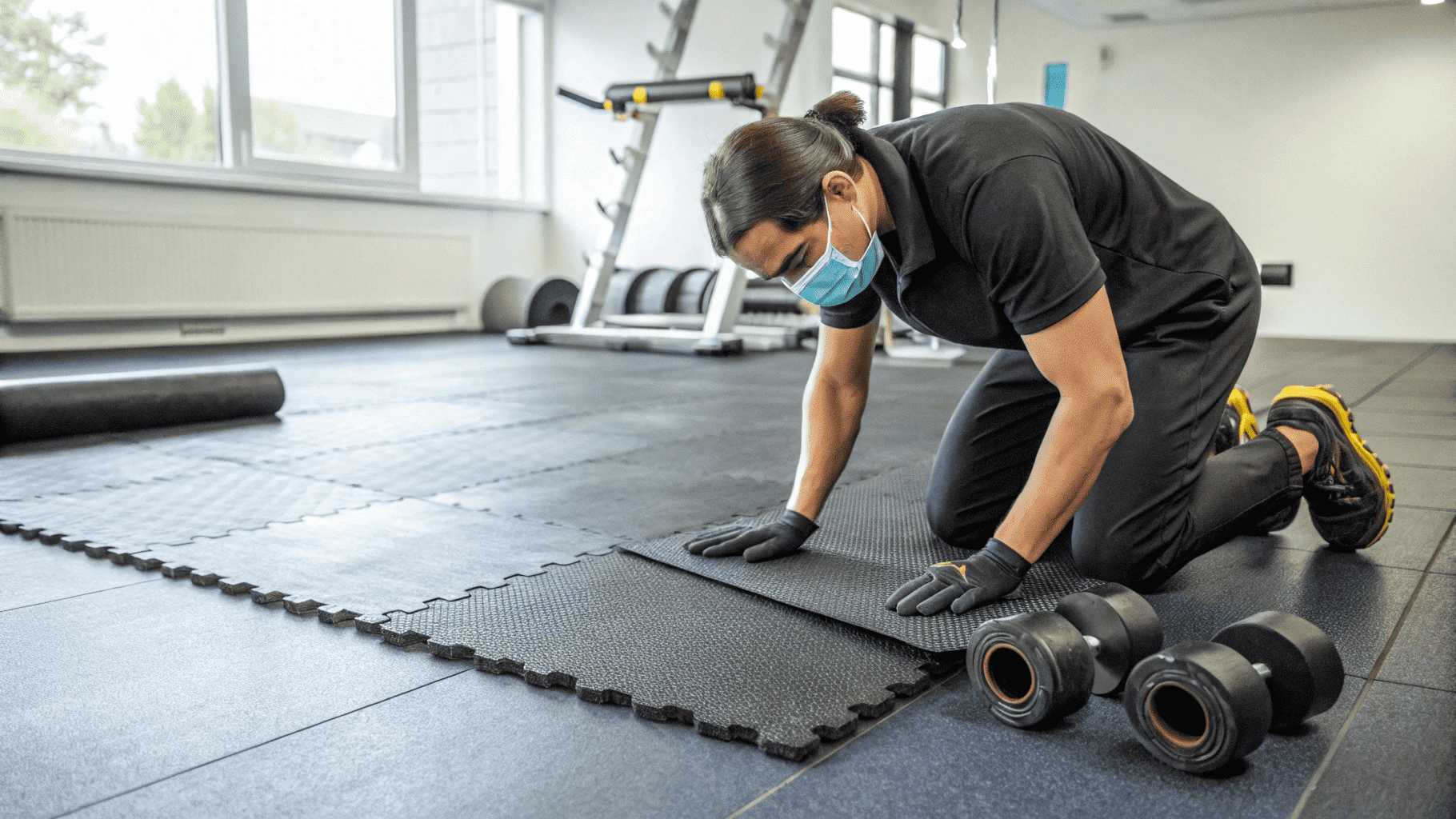 VOC Chemical Structures
VOC Chemical Structures
What are the potential health risks associated with exposure to these chemicals?
VOC is not a good thing,it can cause some bad result.But don’t worry too much.
High exposure can cause eye, nose, and throat irritation, headaches, nausea, and, in rare cases, more serious long-term health issues. However, levels in most modern rubber flooring are typically low, especially with ventilation.
How can I determine if my rubber flooring is emitting harmful levels of VOCs?
It’s invisible, so how do you know? It’s like checking for a gas leak – you need the right tools.
Air quality testing kits can measure VOC levels. Professional testing is also an option. Strong, persistent odors might indicate higher levels, but testing provides concrete data.
Are there certifications or standards that guarantee low or no toxicity in rubber flooring?
Like a food label showing ingredients, certifications tell you what’s in your flooring.You can find it out.
Look for certifications like GREENGUARD1, FloorScore, or certifications specific to your region. These indicate the flooring has been tested and meets low-emission standards2.
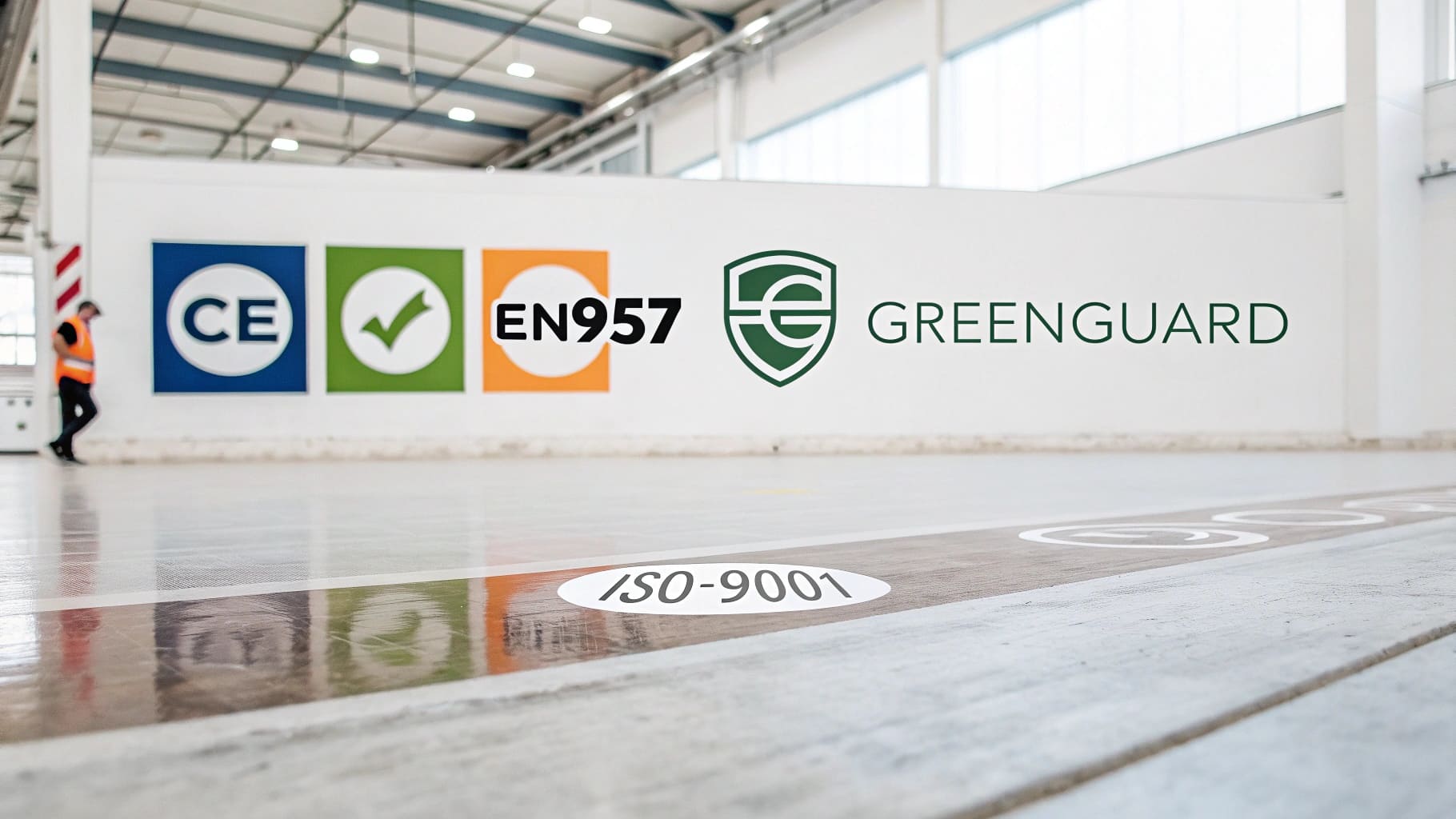 Flooring Certification Logos
Flooring Certification Logos
What precautions should be taken when installing and using rubber flooring to minimize health risks?
Safety is most important.Like wearing a seatbelt, precautions minimize risk.
Ensure good ventilation during and after installation. Consider wearing a mask during installation. Regularly clean the flooring. Choose low-VOC certified products3.
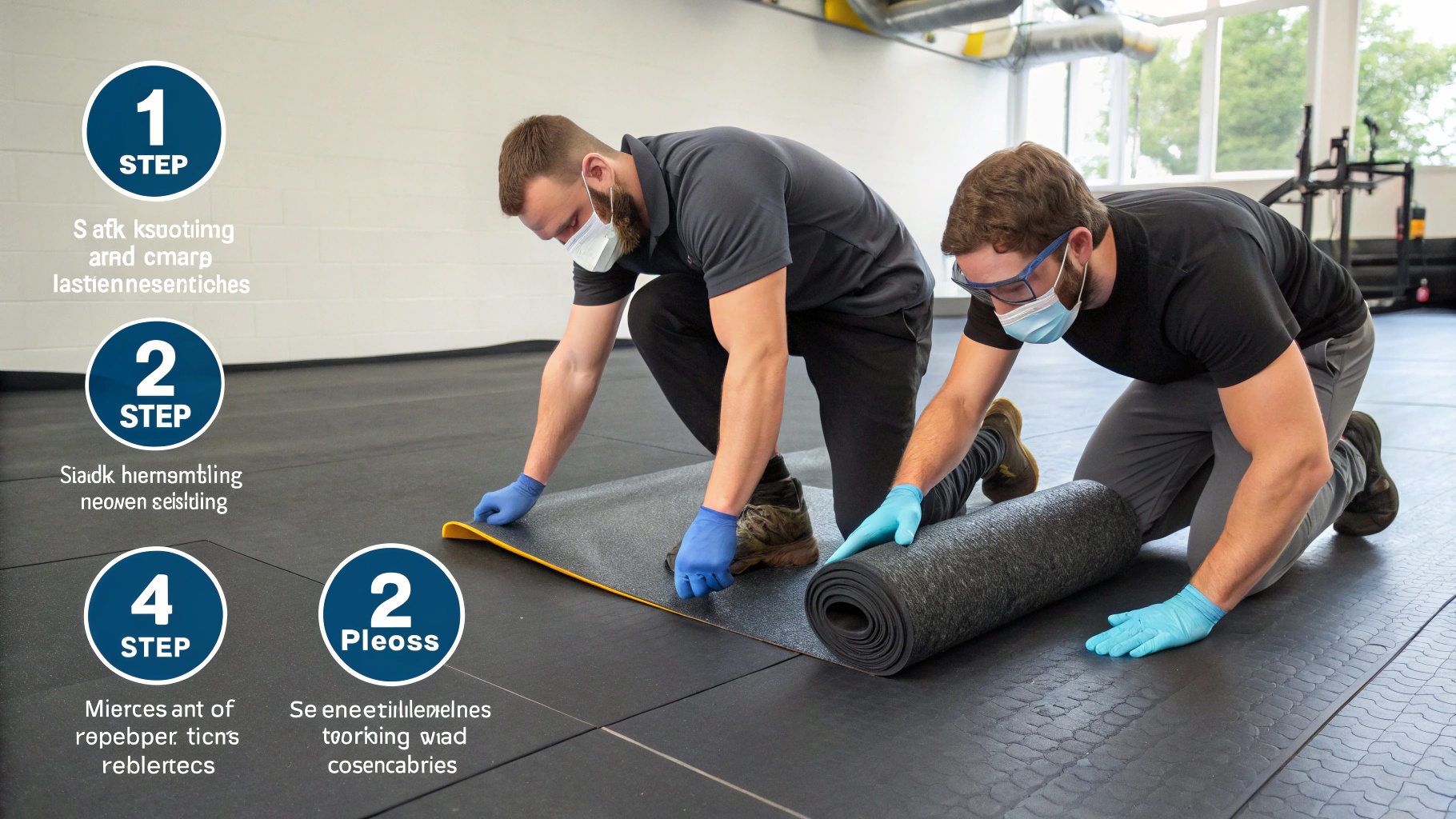 Safe Rubber Flooring Practices
Safe Rubber Flooring Practices
How Do You Get Rid of the Smell of New Rubber?
New rubber smells,It is strong. How can you quickly deal with this issue?
Ventilation is key. Air out the space thoroughly. Clean the rubber with mild soap and water. The smell, caused by off-gassing1, will naturally decrease over time.
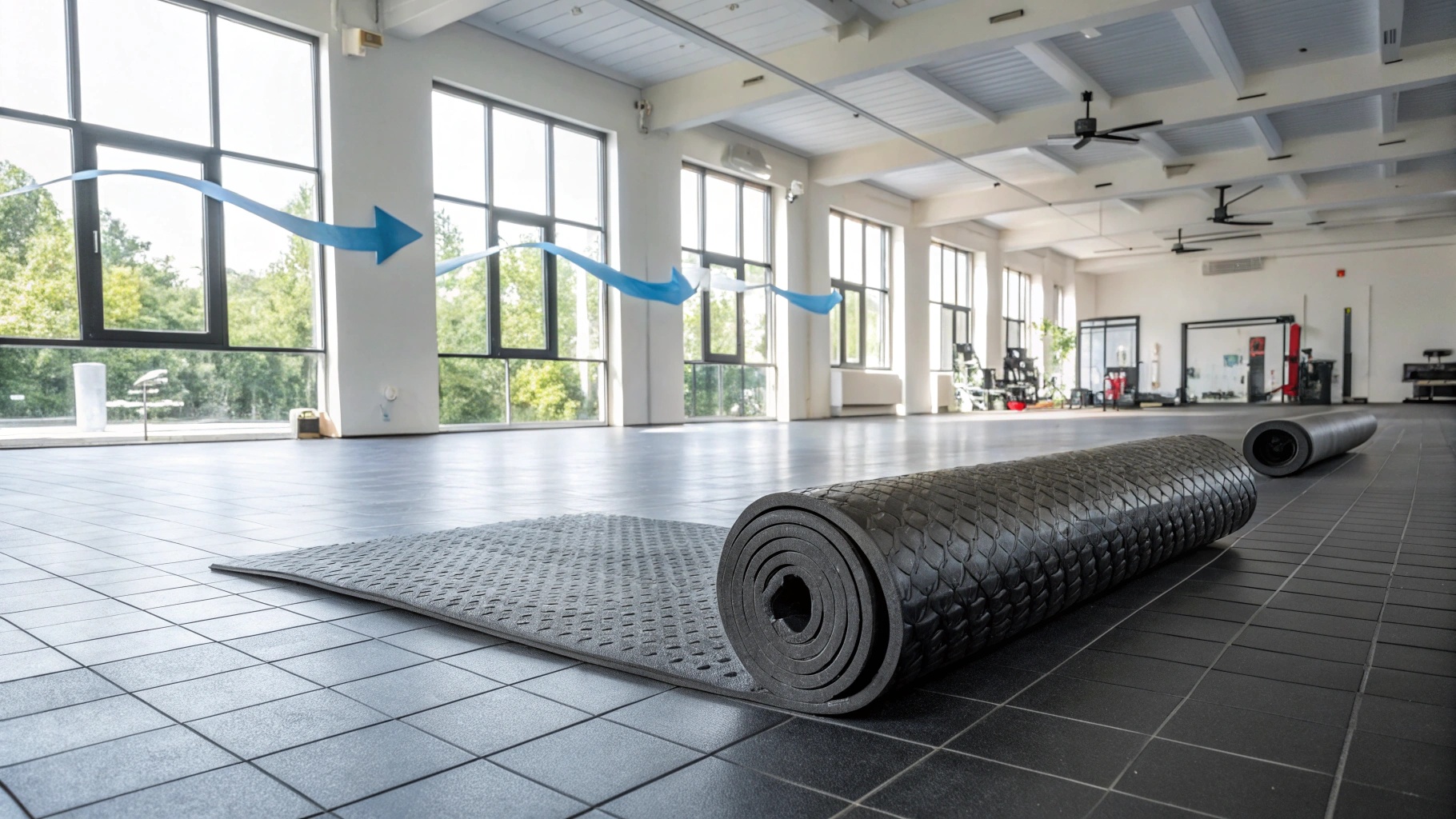 Airing Out New Rubber
Airing Out New Rubber
It’s like airing out a new tent – the initial smell fades as the materials release their trapped gases. But what exactly is that process? Let me show you.
What is the "off-gassing" process, and how long does it typically last for new rubber?
Off-gassing is like the rubber "breathing out" chemicals.It is common.
Off-gassing is the release of VOCs from the rubber. It’s most intense when new and gradually decreases. For rubber flooring, it can last from a few weeks to a few months, depending on the material and environment.
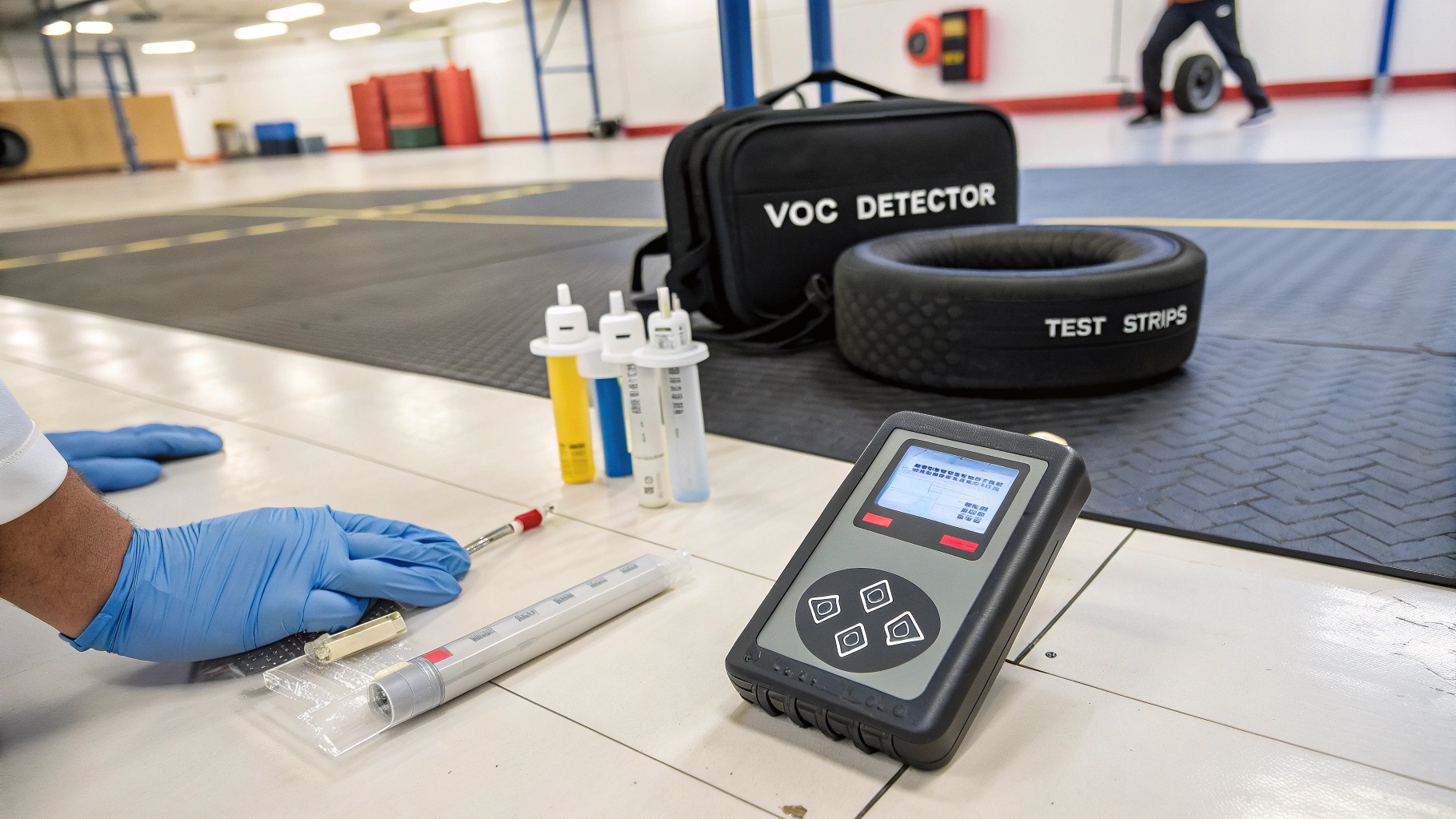 Off-Gassing Process
Off-Gassing Process
Are there any specific techniques to speed up the off-gassing process?
Like ripening fruit faster, you can try to speed things up.
Increase ventilation: open windows, use fans. Raise the temperature (within safe limits). Some specialized products claim to accelerate off-gassing, but their effectiveness varies.
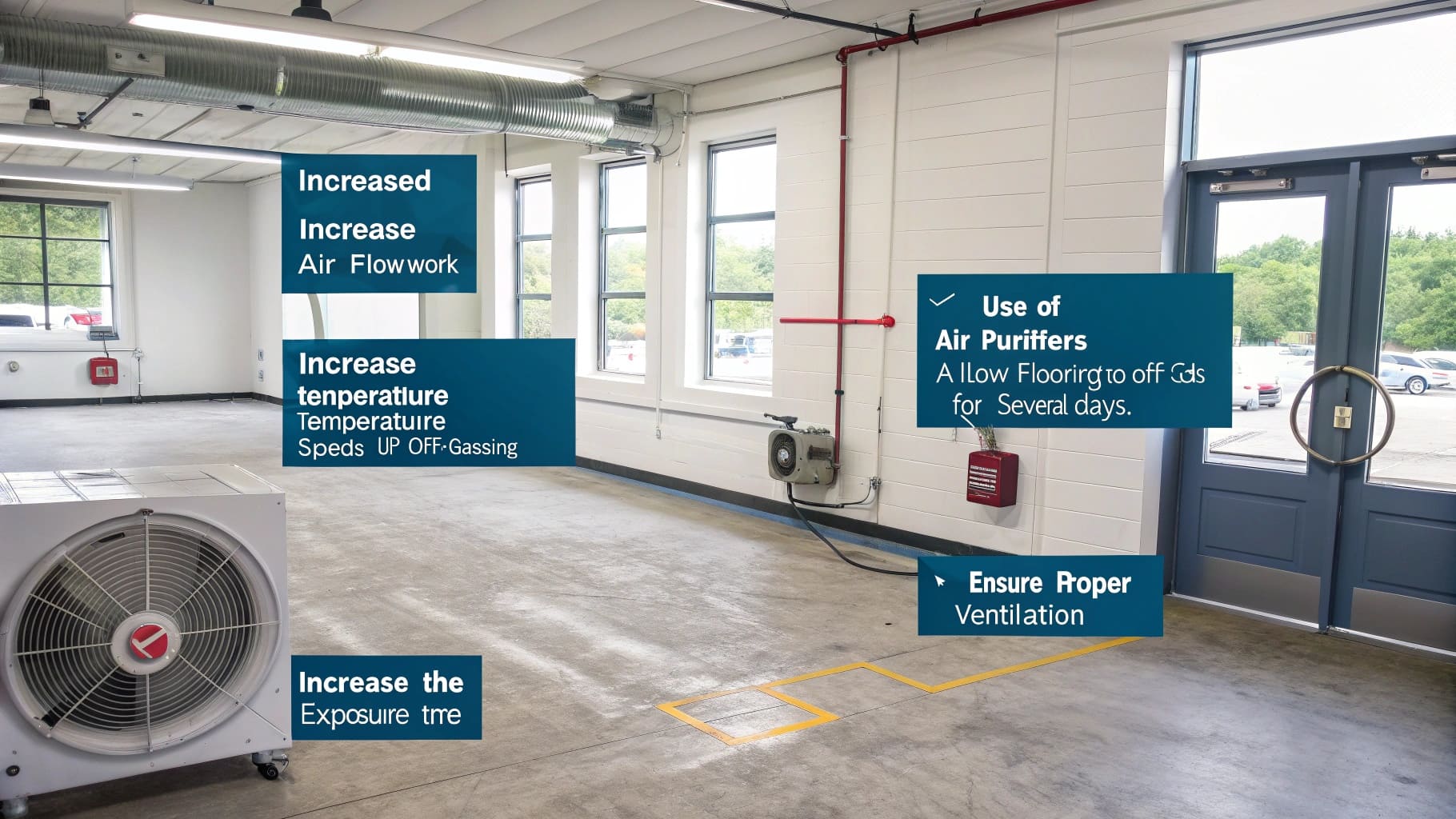 Speeding Up Off-Gassing
Speeding Up Off-Gassing
BYFIT also supplys good rubber flooring,contact us by Whatsapp:+8618353381773.
Does the size and thickness of the rubber flooring affect the intensity and duration of the smell?
Think of a thick steak versus a thin slice of meat – the thicker one takes longer to cook through.
Thicker rubber has more material, thus more VOCs to release, potentially prolonging the smell. Larger areas also mean more overall emissions. Rubber flooring thicker than 20mm creates a "gas entrapment layer," prolonging odor release by 15-30 days compared to thin sheets. Strategic perforation (5 holes/m²) breaks this barrier.
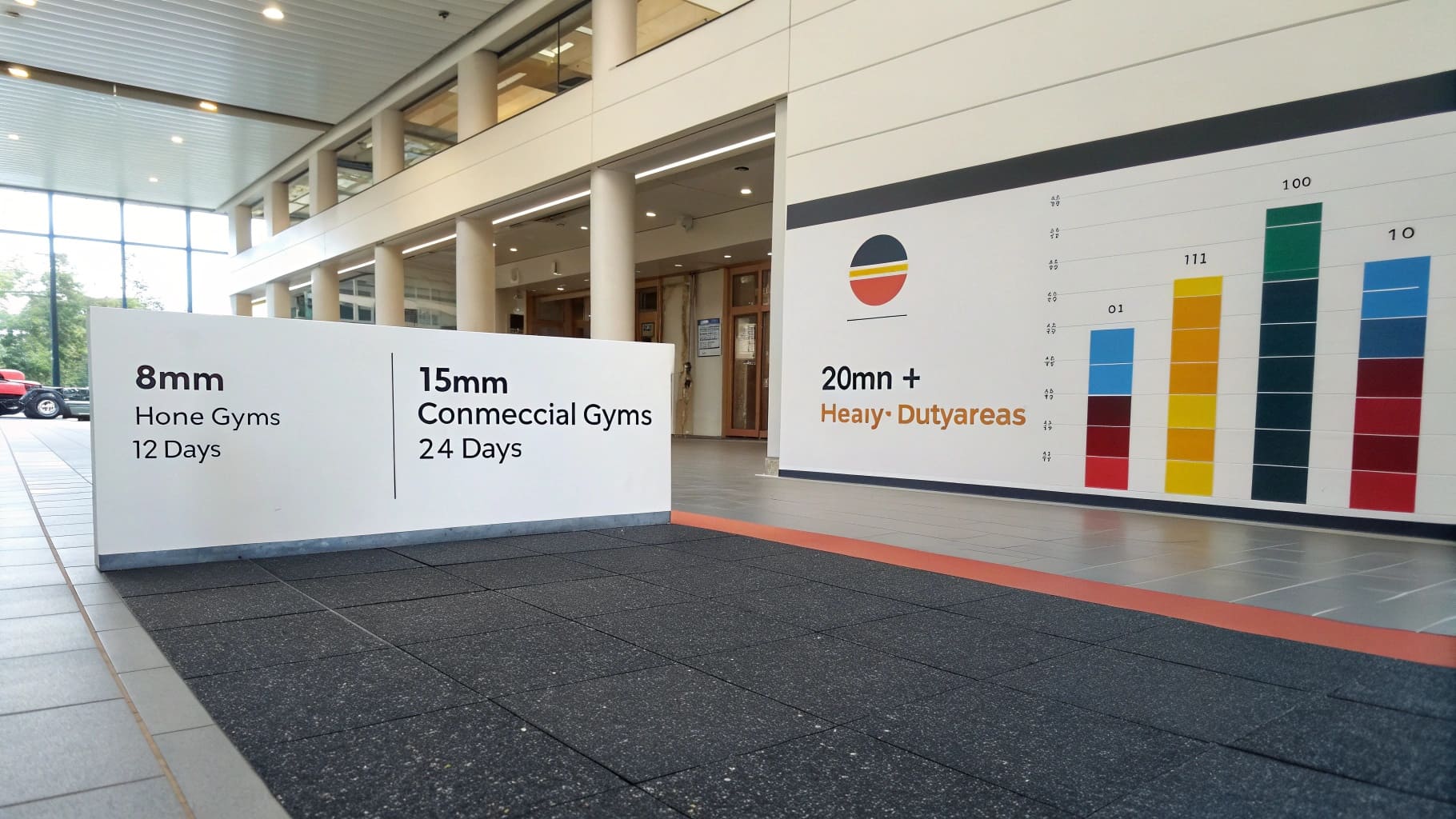 Rubber Thickness and Smell
Rubber Thickness and Smell
What role does temperature and humidity play in the release of the new rubber smell?
Just like baking – heat affects the process. Humidity can be a factor too.
Higher temperatures speed up VOC release, making the smell stronger initially but also helping it dissipate faster. High humidity can worsen the smell with certain rubber types, like SBR, which releases more styrene in humid conditions.
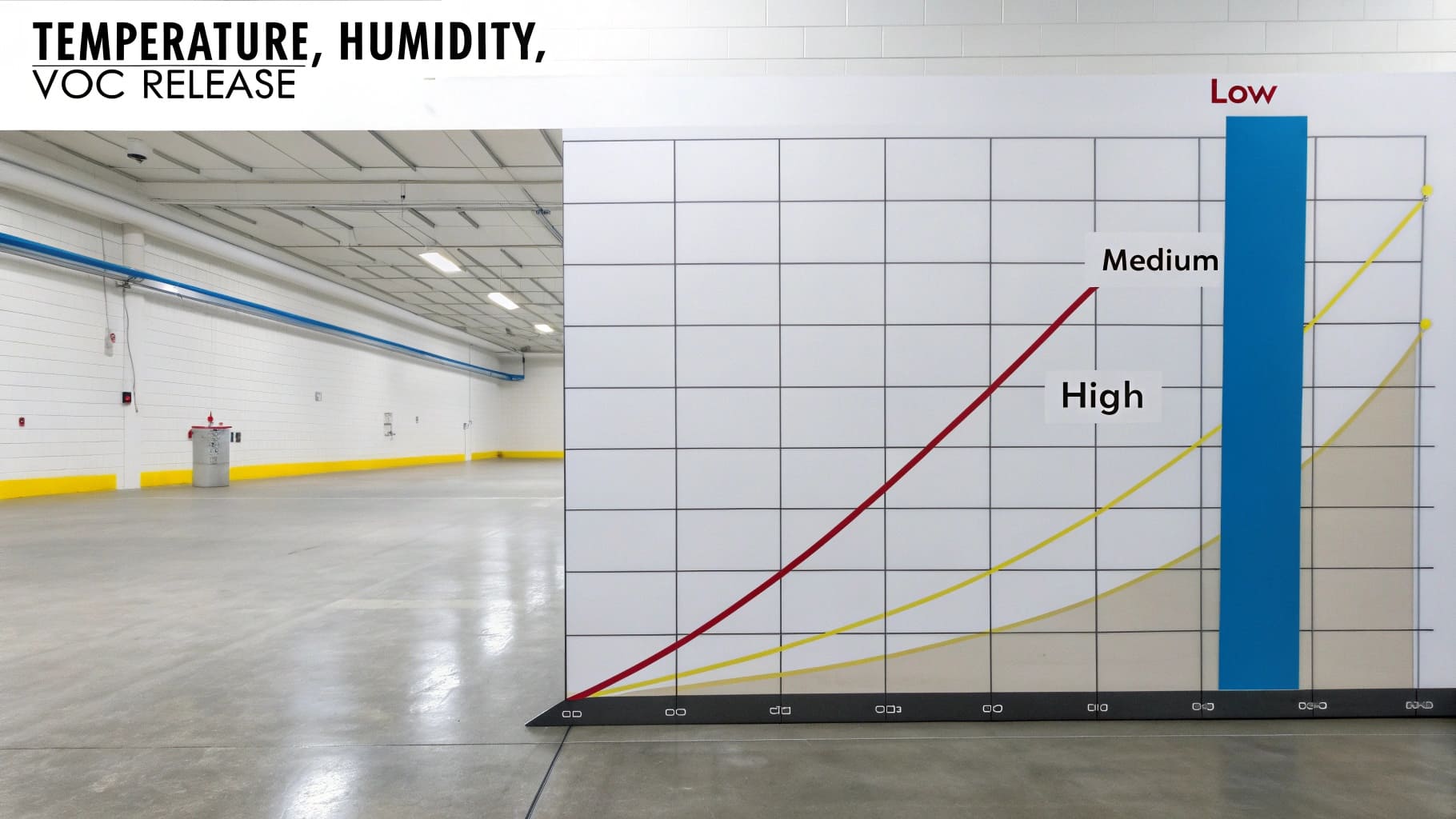 Temperature, Humidity, and VOC Release
Temperature, Humidity, and VOC Release
Is it safe to use air fresheners or other masking agents to temporarily cover the smell?
Masking is a temporary fix, but it can have downsides.
Air fresheners don’t eliminate the VOCs; they just hide the smell. Some contain their own chemicals that can worsen air quality. It’s generally better to focus on ventilation and removing the source of the odor.
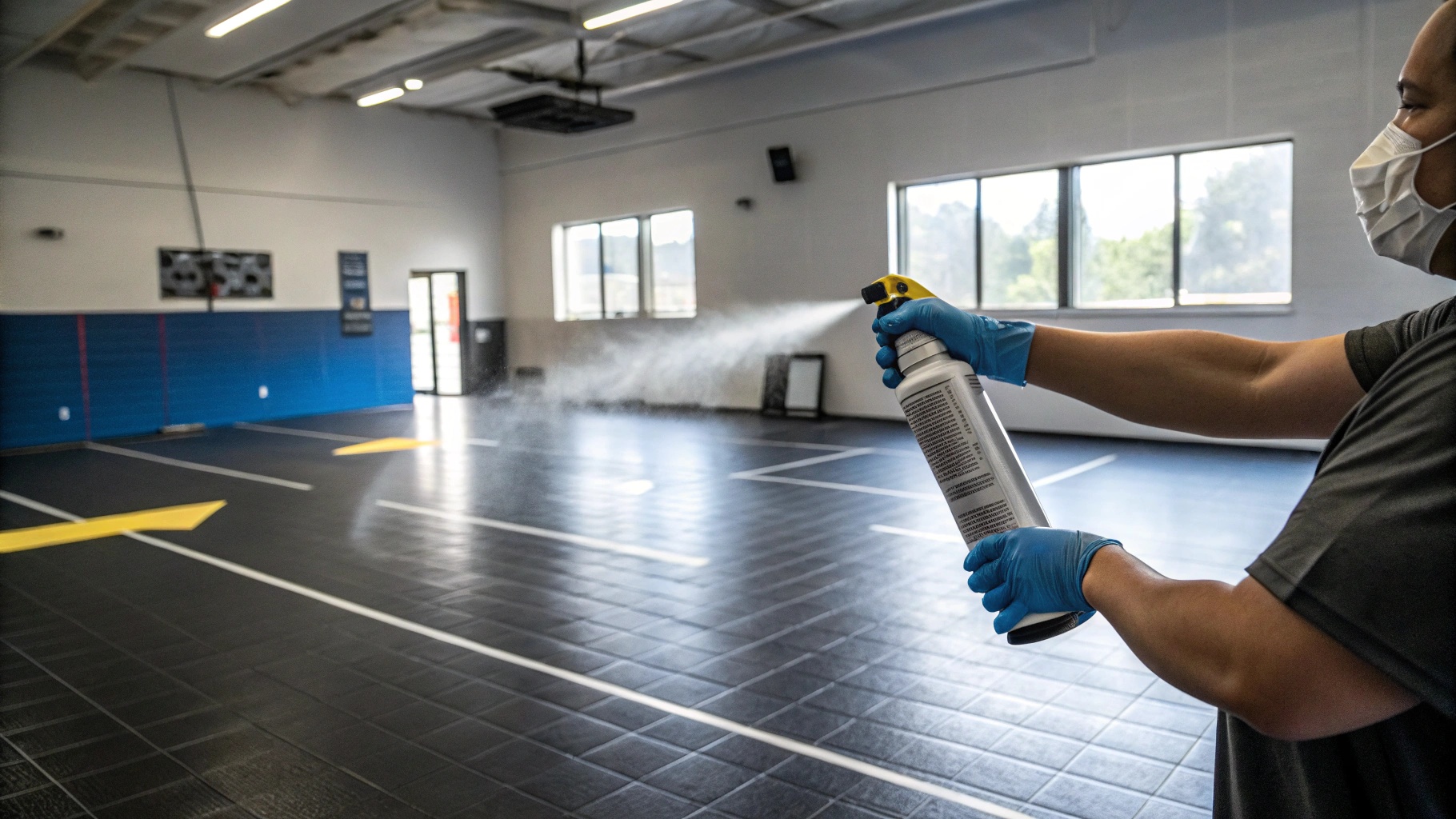 Air Freshener Use
Air Freshener Use
Does the Rubber Smell Go Away?
You’ve dealt with the initial smell, but a lingering question remains: will it ever completely disappear?
Yes, the strong, initial rubber smell does typically go away. However, the time frame varies, and some faint odor might persist, especially with lower-quality materials.
 Fresh-Smelling Gym
Fresh-Smelling Gym
Let’s break down the timeline and factors.
What is the typical timeframe for the rubber smell to completely dissipate?
It’s not instant, but it’s not forever either. Like a new car smell, it fades.
With good ventilation and proper cleaning, most of the strong smell should dissipate within a few weeks to a few months. Some faint odor might linger, especially with recycled rubber.
 Rubber Smell Timeline
Rubber Smell Timeline
Does the quality of the rubber flooring affect how long the smell lasts?
Like comparing a cheap perfume to a high-end one – the quality impacts longevity.
Higher-quality, virgin rubber typically has a less intense and shorter-lasting smell. Lower-quality, recycled rubber may have a stronger, more persistent odor due to impurities and additives.
Are there any factors that can prolong the presence of the rubber smell?
Poor ventilation is the biggest culprit. Like keeping a lid on a smelly container, trapping the air keeps the smell around.
Poor ventilation, low temperatures, high humidity, and using the wrong cleaning products can all prolong the smell. Thick rubber (over 20mm) can also trap gases, extending the odor.
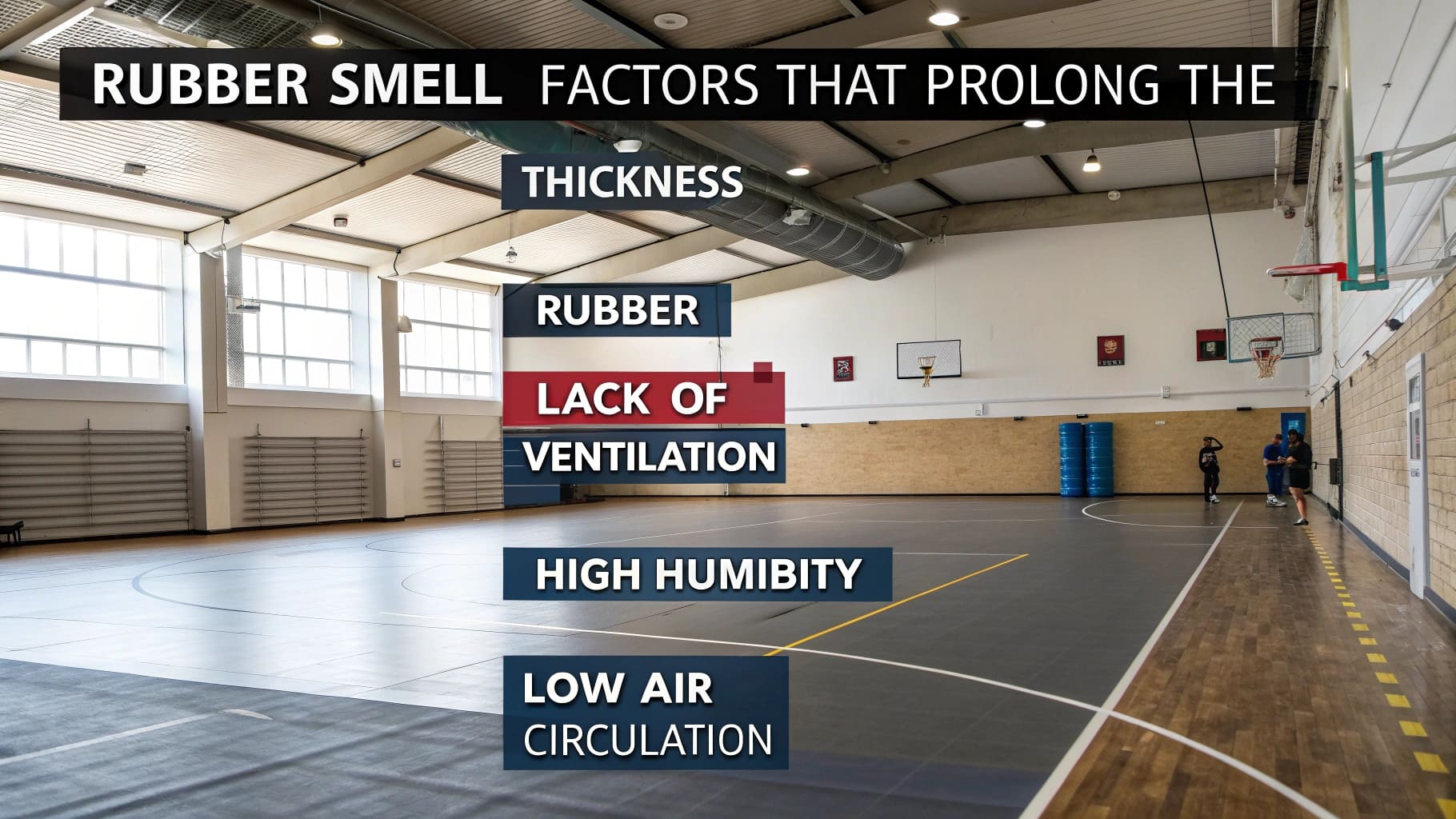 Prolonging Factors
Prolonging Factors
Can the smell return after it has initially disappeared? If so, why?
Sometimes, like a ghost, the smell might reappear. This usually points to an underlying issue.
The smell can return if the underlying cause isn’t addressed. This could be due to trapped VOCs being released later, new spills or moisture activating old residues, or the rubber starting to degrade.
If the smell never goes away, what could be the potential issues?
A persistent smell is a red flag.It is rare but possible.
If the smell never fully dissipates, it could indicate a problem with the flooring itself (poor quality, improper manufacturing), persistent moisture issues, or inadequate ventilation. Professional assessment might be needed.
Conclusion
The rubber smell, while initially strong, usually fades. Ventilation, cleaning, and choosing the right type of rubber are your best tools. Be patient, and your gym will smell fresh.
-
Understanding off-gassing is crucial for maintaining a healthy indoor environment. Explore this link to learn more about its effects and solutions. ↩ ↩ ↩ ↩ ↩ ↩
-
Learn about low-emission standards to ensure your flooring choice is safe and environmentally friendly. ↩ ↩ ↩
-
Discover the significance of low-VOC certified products for healthier indoor air quality and safety. ↩

